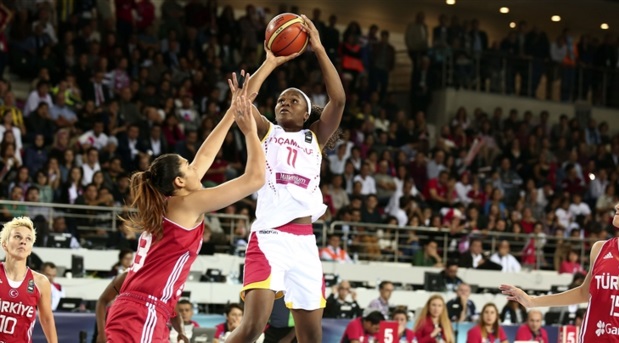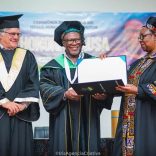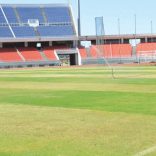Mozambique: Sérgio Kanji passes away
Dongue’s European chance has arrived

FIBA / Leia Dongue (MOZ) - Mozambique v Turkey, 2014 FIBA World Championship for Women, Ankara (Turkey), Group Phase, 30 September 2014
Over the last eight years, Mozambique’s Leia Dongue has won almost everything she had to win in African basketball. Now she faces the challenge of building her name in Europe.
And although she began her European odyssey over the weekend on the losing end of things, she made a statement of her intentions. I’ll talk about this later in this column.
I say ‘Dongue has won almost…’ because the 24-year-old forward – one of the most decorated talents based on the African continent – has never won AfroBasket Women, FIBA Africa’s flagship women’s competition. And last year she missed out on a superb opportunity to help her country win a first-ever continental trophy in Yaounde, Cameroon.
Under the leadership of veteran point guard Deolinda Ngulela, Mozambique showed up in Yaounde with a young, talented and competitive team. However, Dongue chose to sit out the tournament for personal reasons – a decision that generated heated debates in sections of the Mozambican society with some calling her “ungrateful and [a] traitor”.
Mozambique won four of their eight games, claiming a sixth-place finish in Yaounde, but I still feel that they could have done a lot better with Dongue in the team.
The 24-year-old won African Champions Cup Women (ACCW) in 2008 and 2012 – while playing for Desportivo de Maputo -, and last December she sparked Angolan side Primeiro D’Agosto to their first ACCW since 2006. She was also named the ACCW Most Valuable Player on two occasions (2014 and 2015), and was voted to the All-Tournament teams several times.

However, I always felt what Dongue really looked for was a chance to prove herself in more competitive leagues.
After playing for D’Agosto the past two season, Dongue’s anticipated European opportunity came last week when she joined CB Al-Qazeres Extremadura in the Liga Feminina 2 – Spain’s second tier competition.
Dongue came off the bench contributing 12 points in 12:38 minutes but Al-Qazeres Extremadura – who lead group A with a 19-2 mark – fell short 66-64 to rivals Araski AES.
Her introduction to European is now done and it’s time for her to live up to the expectations.
Over the years, I wasn’t the only suggesting that Dongue had the potential to compete at high-level because of her tenacity and fearless competitiveness, but I also noted that Dongue needed to lose the habit of over-dribbling.
Last December, however, while playing for D’Agosto, Dongue’s game seemed more matured as she move the ball more often and looked more like a real leader.
When asked if she could succeed in Spain, she explained during her introduction last week: “I didn’t come for the money. The aim is to help my team get promoted to the Liga Feminina [Spain’s topflight], that’s the reason I joined the team.”
She continued: “I think I made the right decision. I follow the European basketball, although I have never played for an [European] club, but I have faced European teams with [Mozambique] national team.”
CB Al-Qazeres Extremadura head coach Jacinto Carbajal can’t wait to see Dongue sparking his team for the remaining of the season.
“She will adapt well. As a team we must work to help her integrate, so she can help us,” he said. “She can score and rebound, and will be able to do it with us. It’s a great signing.”
I remember watching Dongue making her world stage debut in the 2012 FIBA Women’s Olympic Qualifying Tournament, and at the time she hinted how good she could become. I wasn’t wrong, in just two years, at 2014 FIBA World Championship for Women, Dongue rightfully introduced herself to the world of basketball.












Leave a Reply
Be the First to Comment!
You must be logged in to post a comment.
You must be logged in to post a comment.